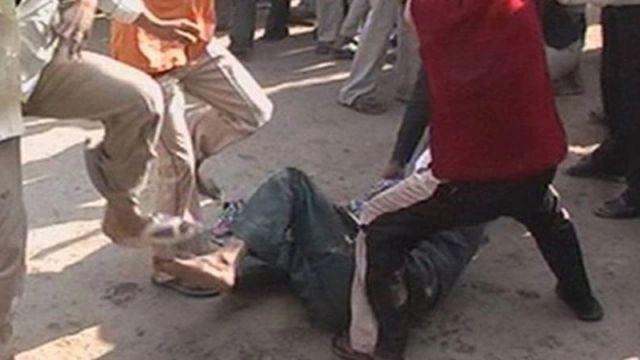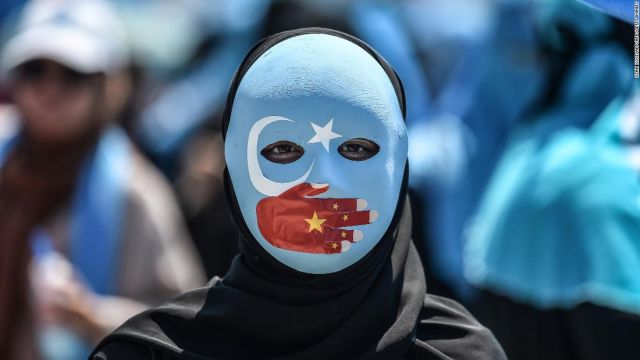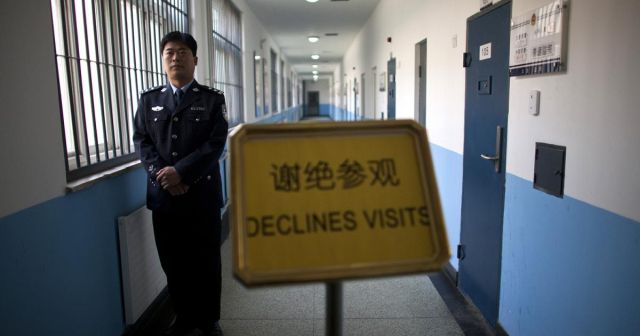
by admin | May 25, 2021 | News
 New York : The Indian government should prevent and prosecute mob violence by vigilante groups targeting minorities in the name of so-called cow protection, Human Rights Watch has said.
New York : The Indian government should prevent and prosecute mob violence by vigilante groups targeting minorities in the name of so-called cow protection, Human Rights Watch has said.
A 104-page report, “Violent Cow Protection in India: Vigilante Groups Attack Minorities,” describes the use of “communal rhetoric” by members of the ruling Bharatiya Janata Party (BJP) to spur a violent vigilante campaign against consumption of beef and those engaged in the cattle trade.
Between May 2015 and December 2018, at least 44 people – including 36 Muslims – were killed in such attacks, the report said. It added that police often stalled prosecutions of the attackers while several BJP politicians publicly justified the attacks.
“Calls for cow protection may have started out as a way to attract Hindu votes, but it has transformed into a free pass for mobs to violently attack and kill minority group members,” said Human Rights Watch.
“Indian authorities should stop egging on or justifying these attacks, blaming victims, or protecting the culprits.”
—IANS

by admin | May 25, 2021 | World

A demonstrator wearing a mask painted with the colors of the flag of East Turkestan and the Chinese flag attends a protest in Istanbul, Turkey in July 2018. Beijing has been accused of widespread human rights violations against Turkic Muslims in the far western region of Xinjiang. (Credit: CNN)
Beijing : A rights group on Monday accused the Chinese government of conducting a mass, systematic campaign of human rights violations against Muslims in the far western region of Xinjiang.
The new Human Rights Watch (HRW) report comes after a UN committee last month raised alarm at the “numerous reports of detention of large numbers of ethnic Uyghurs and other Muslim minorities held incommunicado and often for long periods, without being charged or tried, under the pretext of countering terrorism and religious extremism”, CNN reported.
In the report, HRW documents the increasing government control over the 13 million Muslims living in Xinjiang.
It is estimated that in the area, one million are currently detained in re-education camps where they are forced to learn Mandarin and sing the praises of the Chinese Communist Party.
“The Chinese government is committing human rights abuses in Xinjiang on a scale unseen in the country in decades,” Efe news quoted said Sophie Richardson, HRW China director, as saying.
Detainees in these political re-education camps have not been charged with any crime, have no access to lawyers or contact with relatives.
HRW pointed out that they have been held under circumstances that do not constitute a crime, including having links with foreign countries, using foreign communications tools like WhatsApp – censored by the Chinese authorities – or peacefully expressing their identity and religion.
“I asked (the authorities) if I can hire a lawyer and they said, ‘No, you shouldn’t need a lawyer because you’re not convicted. There’s no need to defend you against anything. You’re in a political education camp – all you have to do is just study’,” a man who spent months in the camps told HRW.
“Nobody can move because they watch you through the video cameras, and after a while a voice came from the speakers telling you that now you can relax for a few minutes… We were watched, even in the toilet,” another detainee told the rights group.
Outside these centres, Xinjiang citizens are under mass surveillance with high-tech systems such as phone spyware, biometrics, QR codes and big data, and officials make regular visits to their homes where they stay, the report said.
Passport controls, compulsory attendance in Mandarin night schools or flag-raising ceremonies are also common, with authorities even encouraging neighbours to spy on each other and sowing division between families.
Amid the allegations of systematic abuse by numerous organisations in Xinjiang, the Chinese government insisted that people in China have complete freedom to choose their religion.
—IANS

by admin | May 25, 2021 | World
 Nay Pyi Taw : The non-profit Human Rights Watch on Friday urged the Myanmar government to stop the demolition of villages abandoned by the Rohingya minority in Rakhine state from where almost 700,000 members of the community have fled to Bangladesh.
Nay Pyi Taw : The non-profit Human Rights Watch on Friday urged the Myanmar government to stop the demolition of villages abandoned by the Rohingya minority in Rakhine state from where almost 700,000 members of the community have fled to Bangladesh.
HRW said satellite images revealed that the government has bulldozed dozens of Rohingya settlements and added that they should be preserved as “crime scenes” to investigate allegations of atrocities against the military, reports the BBC.
“Many of these villages were scenes of atrocities against Rohingya and should be preserved so that the experts appointed by the UN to document these abuses can properly evaluate the evidence to identify those responsible,” said Brad Adams, Asia Director, HRW.
“Bulldozing these areas threatens to erase both the memory and the legal claims of the Rohingya who lived there,” he added.
The Rohingya exodus started after August 25, 2017, when the military carried out a campaign in retaliation for attacks by a Rohingya rebel group on multiple government posts.
According to the HRW statement, since late 2017, authorities have used heavy machinery to clear at least 55 villages of all structures and at least two of the demolished villages were previously undamaged.
Between January 9 and February 13, bulldozers razed two settlements in the village of Myin Hlut that appeared intact in images from November 2017, the non-profit said.
“Deliberately demolishing villages to destroy evidence of grave crimes is obstruction of justice,” said Adams.
HRW said that 362 Rohingya villages had already been completely or partially razed during the military campaign last year.
The repatriation of Rohingya refugees, numbering around 688,000, should have began within two months of November 23, 2017 – when an accord between Bangladesh and Myanmar was signed – but Bangladesh decided to postpone the process in January.
The non-profit has demanded that representatives of the UN be given access to Rakhine to study the allegations the army committed murder, rape and other crimes.
—IANS

by admin | May 25, 2021 | World
 Beijing : A rights group on Monday asked the Chinese government to stop building big data policing platforms to store personal information of its population, calling it a violation of privacy rights.
Beijing : A rights group on Monday asked the Chinese government to stop building big data policing platforms to store personal information of its population, calling it a violation of privacy rights.
The Human Rights Watch’s statement said the “Police Cloud” was designed to track and predict the activities of activists, dissidents and ethnic minorities, and does not comply with international privacy standards, reports Efe news.
“It is frightening that Chinese authorities are collecting and centralizing ever more information about hundreds of millions of ordinary people, identifying persons who deviate from what they determine to be ‘normal thought,’ and then surveilling them,” said Sophie Richardson, China director at Human Rights Watch.
The Chinese government, according to the HRW, has stored citizens’ information for years, and is now exploring new technologies to gather personal information more efficiently, and to share it across departments at both the national and local levels.
Various applications used to analyse texts, videos and security camera images in real time or near real time are aimed at suppressing crimes, however, the HRW said these methods also allow police to arbitrarily obtain information about ordinary people.
International privacy standards require the collection, retention, and use of the personal data of individuals for policing purposes be allowed only if there was a genuine threat to a public interest; the laws in China did not meet these requirements, said the HRW.
“Preventing crime is a legitimate state interest, but predictive tools often point to the same old patterns, making it likely for policing to replicate old mistakes or biases such as targeting of people of lower socio-economic status.
“This throws into doubt whether the use of these predictive tools adds much new, and whether they are either a necessary or proportionate intrusion on the rights of individuals,” the HRW added.
—IANS

 New York : The Indian government should prevent and prosecute mob violence by vigilante groups targeting minorities in the name of so-called cow protection, Human Rights Watch has said.
New York : The Indian government should prevent and prosecute mob violence by vigilante groups targeting minorities in the name of so-called cow protection, Human Rights Watch has said.


